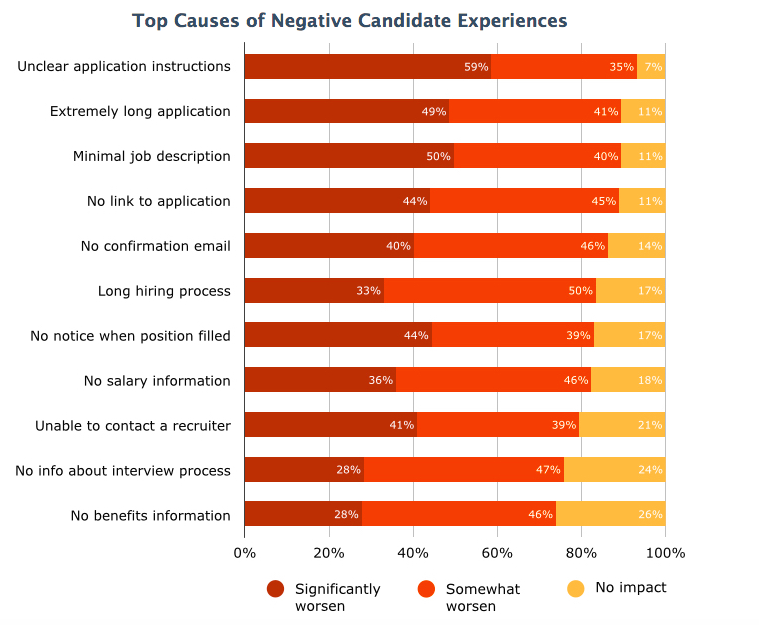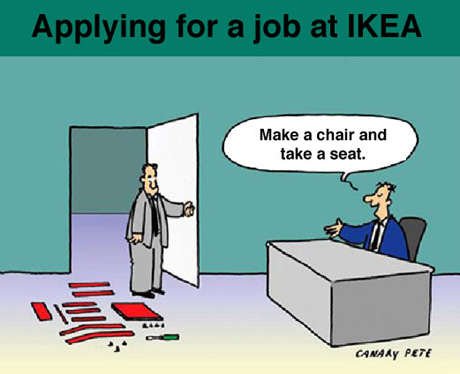“Candidate Experience” is a hot topic in my HR network at the moment.
For those of you unfamiliar with this phrase, it’s the reaction a job seeker has about an organisation’s job application process, and for me, it hits close to home.
Whilst the idea of “candidate experience” isn’t necessarily new or even innovative, what is new about it, is how it’s impacting the employment landscape and companies competitive advantage.
When I was actively applying for jobs 10 years ago, I experienced the good, bad and ugly aspects of candidate experience in various recruitment processes:
The good; I applied for a Senior HR role with a large employer in Napier – The hiring manager kept the communication channels open throughout the entire process, responded to my questions within an appropriate timeframe and made me feel at ease by delivering on her promises. No topic was off limits & we openly discussed money, KPI’s, how to get the best out of me from a motivational standpoint, etc.
The bad; I applied for an Operations role with medium size business in Hastings – I received an automatic reply confirming acceptance of my application and had an in-person interview after an initial phone screen. I was told the hiring manager “loved me” and a job offer was imminent. I waited and waited and then…. nothing but crickets. My emails & phone calls were ignored and I was treated like a leper. The job posting disappeared and I was left wondering “What the heck did I do?” “What went wrong?”
The ugly; I applied for a senior HR role with a multinational food company in Auckland – I didn’t hear back after submitting my application, so I reached out to the HR Coordinator. Apparently, my application had been misplaced & I was asked to resubmit it. (Sure, no problem, I can do that!) Further requests for progress updates were ignored and then, out of the blue, I received a phone call and was expected to participate in an impromptu phone interview (which I did whilst grocery shopping at Countdown. Awkward).
Another few weeks passed without correspondence and I assumed I didn’t make the cut. That’s when I got a call saying I had done very well at the phone interview stage, was one of the final three candidates & could I fly to Auckland for an in-person interview the following week. (Sure, no problem, I can do that!)
I moved mountains to secure time off, make travel arrangements and prep for the day. When I arrived at HO looking sharp and ready to crush the interview, I was told the HR Coordinator was off sick. “Okay…. can I meet with the HR Director? I’ve just flown up from Napier for a job interview!!” The HR Director was also away for the day.
I don’t know what was up with this company, but no one was interested in helping me problem solve a way around the situation and all I received in the end was a few token apologies and a cheque for reimbursement of my travel costs.
I remember my face turning beet red when I walked out of that building and I was awash with feelings of foolishness for not listening to the glaring signs that screamed “do not progress with this job”.
Lucky for that company, I’m not a malicious person and avoid conflict most of the time – I never did lash out on social media or publicly shame them, but I have boycotted their products ever since that day and have told every person close to me how horribly they treat people. A small, sweet justice.
Talent Board – a US not-for-profit research organisation focused on the elevation and promotion of a quality candidate experience, recently conducted a survey and found an upward trend in negative candidate experiences. On the part of recruiters & hiring managers, there is “less personalisation, less cordial, less responsive trends overall,”.
And I get it, people are busy. Technology has made it possible for jobseekers to blanket apply for dozens of jobs online in a matter of minutes, so recruiters & hiring managers are inundated with CV’s.
The problem is, it’s not just shockingly bad treatment of candidates (like I experienced) that makes for a negative candidate experience, take a look at some of the other triggers:

*Photo Credit: RecruitLoop
If you care about your employer brand and want to be able to recruit talented individuals, you might want to implement more quality checks and protocol around the candidate experience.
Here’s some tips:
- Remember what it feels like to be on the other side of the table & apply some of those timeless rules your Mama taught you: use your manners, show some respect & demonstrate common courtesy.
- Be prepared before you press go on the job posting: decide on how the recruitment process will be handled, make the application process EASY, mobile optimise, set timelines for notifications/status updates, lock in the salary & benefits information, draft a clear job description, anticipate what candidates will request from you & get it sorted.
- Balance automation & personalisation: When your candidates feel like they’re communicating with a faceless robot, it’s time to scrap efficiency and add a human-touch to the process. Personalising emails or even picking up the phone to touch base with candidates will create a real competitive advantage for your company.
- Be honest & give feedback: Reject candidates – tell them they didn’t get the job so they can move on! Offer a follow up conversation. Let them know how they can improve or why they missed the mark. Don’t be afraid to be honest – candidates understand that there is only one person that’s going to get the job. Help them to be better candidates in their next job opportunity.


